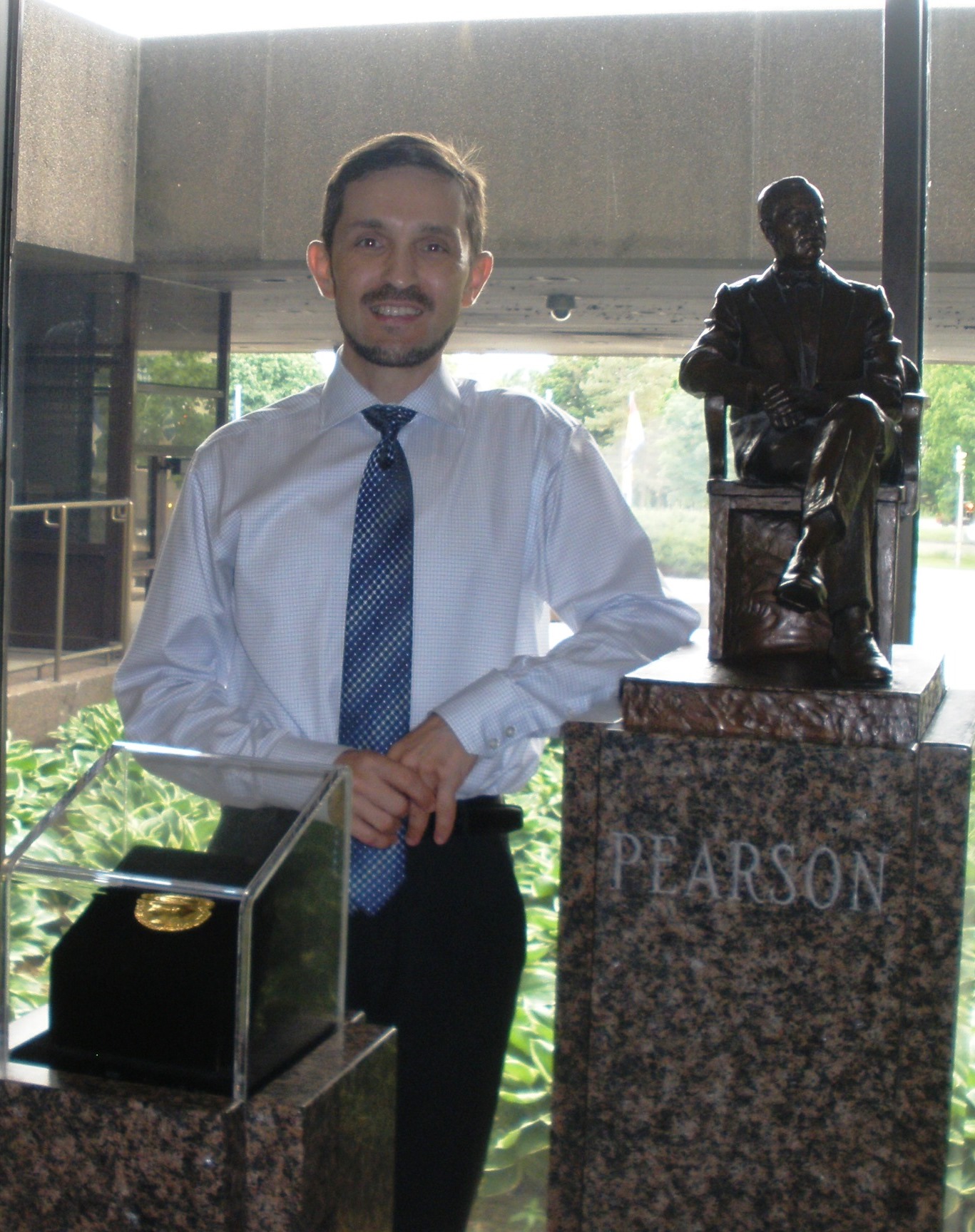Written by guest blogger, Marcel Jesenský.
The 2014 Olympic Winter Games in Sochi once again focused attention on the hotly contested issue of sports and politics and the potential of sport to further national prestige. After the Canadian Men’s Hockey Team’s gold-winning performance at the Sochi Games, Prime Minister Stephen Harper congratulated the team on behalf of all Canadians and stated: “Today’s exciting victory by this exceptional group of players has demonstrated once again that hockey truly is Canada’s game. The passion and dedication shown by our team throughout this gruelling competition have inspired Canadians from coast to coast to coast, and have made us all extremely proud.”
The debate over the notion that international sporting events like the Olympic Games or World Championships have a real impact on national and/or international identity continues. Politicians, sport enthusiasts, and various media sources continuously seek to measure any tangible outcomes of this sport diplomacy.
Like most Slovaks, I grew up with a sense of admiration for and interests in the fastest winter sport. Hockey has always played an important role in the sports and physical culture of Slovakia and the former Czecho-Slovakia. Slovakia gave the world many excellent players, like Stan Mikita, Vladimír Dzurilla, Peter Šťastný, Zdeno Chára and Marián Hossa, to name just a few. Sports and politics do interlock at the national and international levels. It was only when I began to study the history of diplomatic relations between Canada and Czecho-Slovakia that I discovered the fascinating events surrounding Team Canada and its sporting and diplomatic mission at the 1978 IIHF World Championship in Czecho-Slovakia.
In the course of my research, I was struck by the way in which hockey, diplomacy and politics interacted at the 1978 IIHF World Championship. The Department of External Affairs (DEA) in Ottawa was fully aware that Canada’s image in Czecho-Slovakia was intimately if not almost exclusively, identified with hockey. Ottawa sent Senator Sidney L. Buckwold to represent the Government of Canada and make courtesy calls on Czecho-Slovak officials. The DEA meticulously briefed Team Canada prior to its departure for Europe. Finally, Canadian embassies in Sweden and Czecho-Slovakia lent support to Team Canada and monitored its public relations success, working full-time on the world hockey tournament portfolio.
My interest in analyzing “sport diplomacy” and the 1978 IIHF World Championship owes a large debt to my earlier academic training and my career in diplomacy. My diplomatic experience made me understand that the efforts of the Canadian diplomatic staff in Ottawa, Moscow and Prague to alter Canada’s image in the world in the 1970s was novel and modern in many respects. Team Canada was a clever diplomatic orchestration by the DEA – despite its official “hands-off” attitude – as well as part of a larger context of a steadily growing government interest in amateur sport in Canada. I believe that the way in which the DEA managed this “charm offensive” in Europe in 1978 was innovative and gave it greater credibility to participate in the sport diplomacy than many realized.
Marcel Jesenský
Marcel Jesenský’s article, “Win Friends or Make Enemies: Team Canada’s 1978 Diplomatic Mission to Czechoslovakia” appears in the latest edition of the Canadian Journal of History/Annales canadienne d’histoire. Read it today by clicking here: http://utpjournalsreview.com/index.php/CJOH/article/view/13002

Comments on this entry are closed.